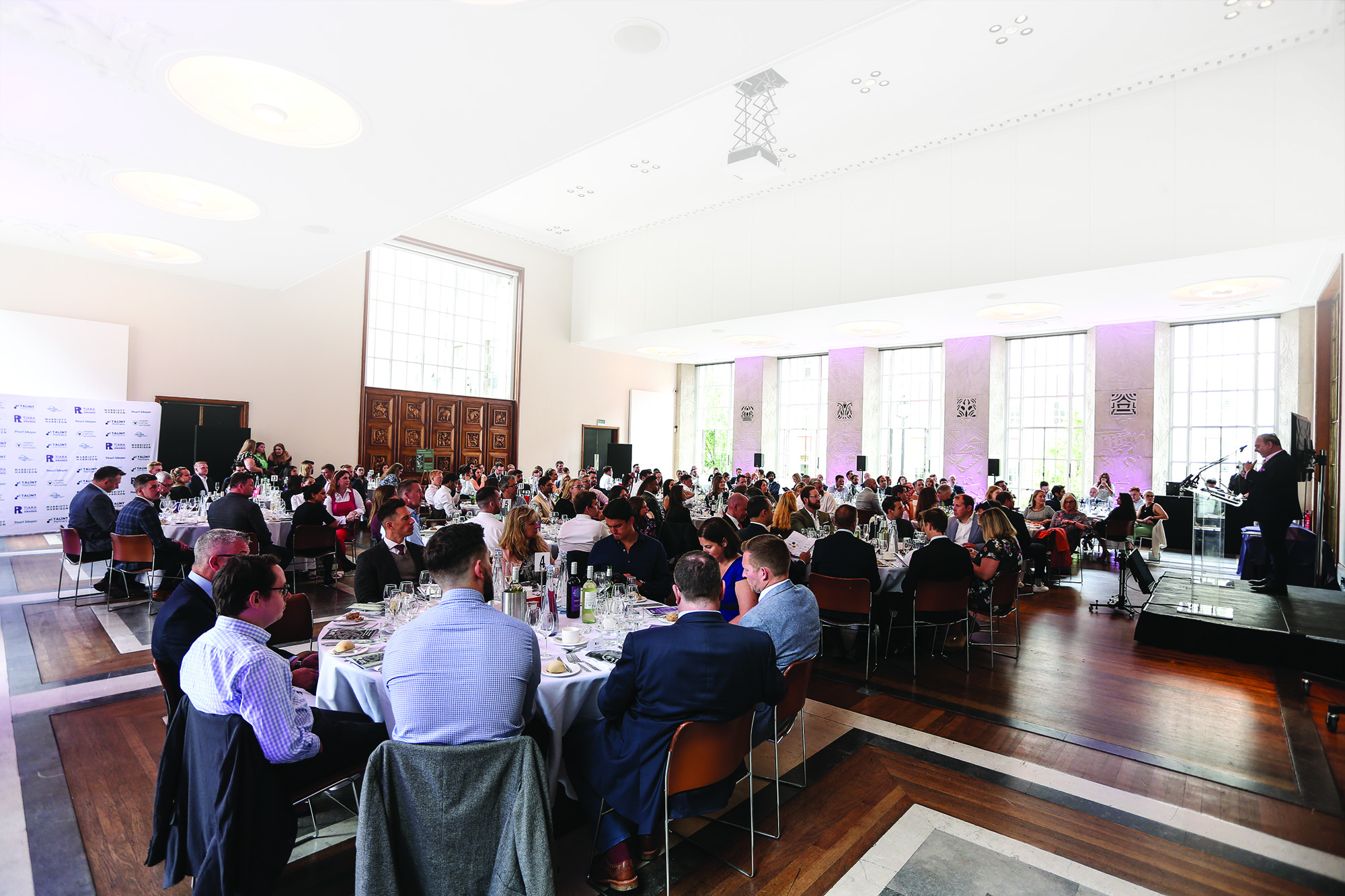TALiNT Partners’ global TIARA Awards programme is revered for the quality and rigour of the judging process by its panel of industry leaders and trailblazers. All finalists are given individual feedback on their entries, which truly does set the TIARAs apart from other awards programmes. TI was fortunate enough to sit down with a judge for this year’s TIARA Talent Tech Star Awards, Alex Charraudeau, Senior Manager – Enterprise Sales at LinkedIn, about the remote work peak and the evolution of work.
TI: You’ve been a part of the recruitment industry since the start of your career. What major evolutions have you seen take place in the last 10 years?
AC: We’ve seen the rise of data-driven recruiting, with recruiters becoming increasingly data savvy, and we’ve also seen a shift in how candidates are sourced – with skills becoming an important factor in the hiring process. We’ve also seen the recruitment sector itself broaden how they hire talent, which has brought a diversity of experience into the industry. For example, one area that’s really advanced is marketing. Today, there is a growing group of sophisticated marketers within recruitment, some with many years of experience in the sector but also from a range of B2B and B2C backgrounds. In addition, the number of learning and development professionals in the recruitment industry today is growing. It’s great to see the recruitment sector investing in its people and helping our industry to advance.
TI: We wrote a feature about LinkedIn in the last issue of TALiNT International. The platform seems to be becoming more and more like any other social media platform. Do you feel that it’s still being utilised as the networking/recruitment tool it was meant for?
AC: LinkedIn is the world’s largest professional network, and content and conversations are geared towards topics related to people’s careers and professional experiences. More than 900 million people across the globe come to LinkedIn to connect, find a job, learn new skills and stay informed. Eight people are hired every minute on LinkedIn, 90 job applications are submitted every second, and 49 million job seekers visit LinkedIn Jobs each week. We’re also increasingly seeing people come to LinkedIn to develop new skills, with more than 100 hours of LinkedIn Learning course content viewed every minute.
“When the pandemic hit the world of work was turned upside down for many people.”
TI: Is it now more a hybrid social networking tool? A healthy mix of personal and professional posts for example, that yields the same results.
AC: When the pandemic hit, the world of work was turned upside down for many people. As a result, we saw an increase in people coming to LinkedIn for the community and conversations- with people sharing more personal experiences as the line between their work and personal lives increasingly blurred. As the world of work evolves, so do the conversations happening on LinkedIn. Current economic uncertainty is sparking conversations on how to navigate the current climate, recession-proof your career, or recruit in a tight labour market. We know that our members want to see insightful and practical content – and we’re working hard to make sure that this is the content people see on LinkedIn every day.
TI: You have intricate knowledge of the recruitment sector, specifically tech since you’ve been with LinkedIn for a decade. What tech advances do you see coming in the next few years?
AC: Technology is ever changing and in the last decade we’ve seen so many new tools and technologies entering the market. That being said, the fundamentals of recruitment haven’t really changed. It is still a business with people at the core. Before we start to look at what technology can do for the industry we need to understand the processes that people are following to drive success within their organisation. Once that groundwork has been done we can start to understand where technology might augment or improve parts of the process.
TI: How does tech enable better recruitment without fully removing the essential human element?
AC: Technology won’t replace the recruiter, but it will help to make them more effective and efficient. In fact, the part of the role that humans do best – the aspects related to interpersonal relationships – will be allocated more time as technology helps with the more time-consuming, menial tasks.
TI: We’re seeing a shift in ways of working again. It seems we’re coming full circle. Fully remote to hybrid to hearing of some companies demanding a full return to the workplace. Is hybrid working here to stay? If not, why?
AC: Our data shows that we have passed ‘peak remote’ – with remote job postings steadily decreasing in many countries across the globe over the last eight months. However, demand for remote roles does continue to outstrip supply, and flexible and hybrid working is still an essential part of working life for many employees. The risk for employers who aren’t prepared to offer flexibility is that they see attrition from their highest performing employees – who are the ones they need most in this climate, and see lower demand from prospective talent.
TI: What tech tool (other than LinkedIn) can you not do without?
AC: Noise cancelling headphones! So important at home, in the office and on the commute. Couldn’t do without them.
TI: What do you see happening to hiring demand this year considering a contraction in economic growth?
AC: Whilst hiring is slowing across the globe, LinkedIn’s data shows that the UK labour market remains tight, and companies still need to work hard to attract and retain talent. Our data shows there are just two active applicants for every open role in the UK – and we’re not seeing fierce competition for roles, which you sometimes expect during slowdowns and economic uncertainty. For businesses that are looking to find talent, they still need to work hard to attract and retain talent. LinkedIn’s data shows that creating greater workplace flexibility and career development opportunities are key drivers of this, in addition to compensation.
TI: You’re about to embark on your first judging journey at the TIARA Talent Tech Star Awards. What does this mean to you?
AC: Firstly, I want to say that it is a real honour to be invited to be part of this awards programme. Knowing the organisations who have previously been in the running and the high standards of those who have won, I know the bar is high and I’m looking forward to seeing what has happened this year in the recruitment sector. Thanks for letting me be a part of this!
TI: What innovations do you think you’ll see come out of the entries this year?
AC: Given all the recent innovation in generative AI and the acceleration of Chatbot capabilities, I’m excited to see what the industry is doing there.
“LinkedIn’s data shows that creating greater workplace flexibility and career development opportunities are key drivers.”










